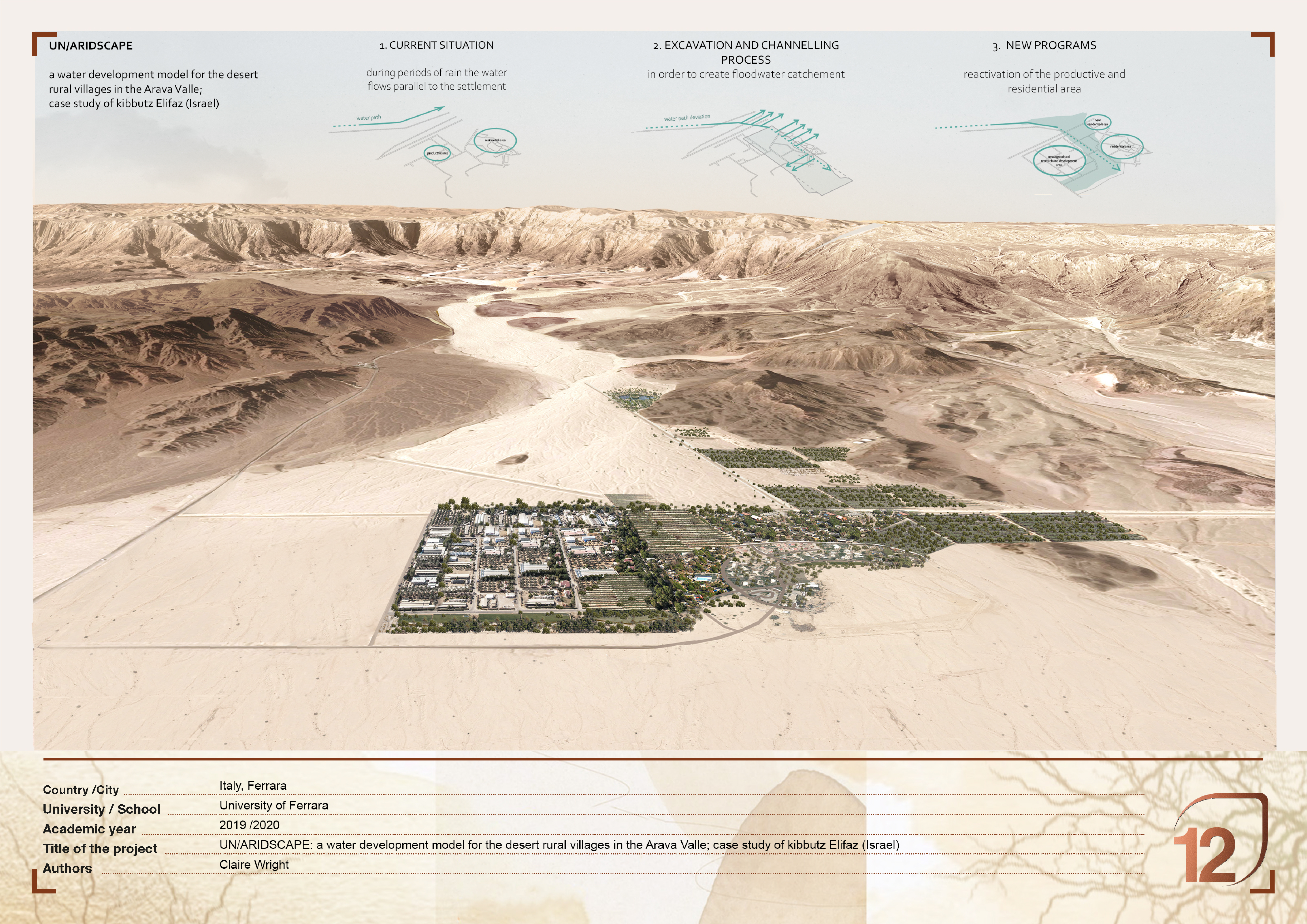
UN/ARIDSCAPE: a water development model for the desert rural villages in the Arava Valley: case study of kibbutz Elifaz (Israel)
Landscape architecture and infrastructure
University of Ferrara
UN/ARIDSCAPE Is a landscape project based on designing a decentralized water management model for rural settlements in the desert of the Arava Valley, in the south of Israel, to meet the needs of a growing population. Israel's population is predicted to double reaching 15 million people by 2050 and 60% of Israel territory is desert; so Israel might explore the possibility to expand towards desert rural settlements, improving the quality of life in these areas. This project's aim can be achieved by a resilent design which develops around localized water solutions, enabling communities to be more sustainable, self- sustained and capable of meeting the challenges of population growth and climate change. The studies show there is enough rainfall to re-green an area as the Valley's arid ones, but more than 50% of rainwater is lost as it evaporates. The project starts by rethinking of that wastewater, through the reconsideration of its scarcity, in a place where every drop can make the dfference. The main programs to be implemented are: flood control systems, water harvesting, effluent treatment and reuse of treated wastewater for crop irrigation and landscaping. The pried examines the case study of the Elifaz kibbutz, suggesting a new land sharing plan, that relates agricultural production and development with a community life. The Elifaz kibbutz would be not a circumscribed case but it must be taken as a model, providing guidelines to be applied along the Arava Valley for a decentralized infrastructure network that will accompany the growth of settlements.
